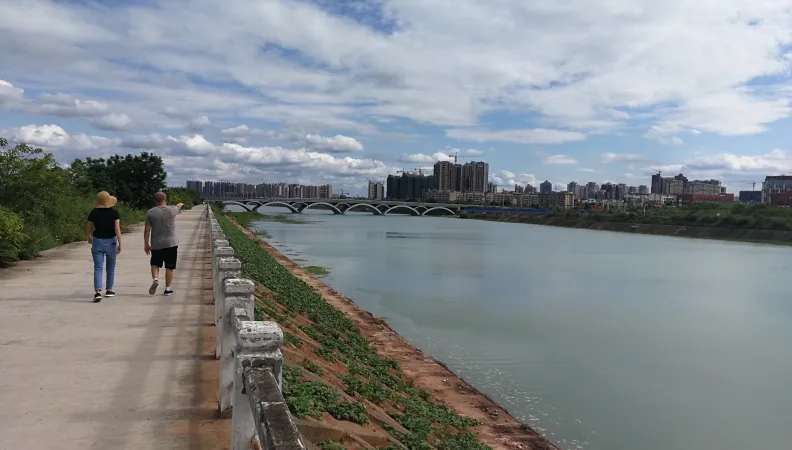Share the page
“Sponge City”: rethinking water resource management in the Hedong district of Mianyang
Project


-
Project start date
-
Status
Ongoing
-
AFD financing amount
-
€ 35000000
-
Country and region
-
Location
-
Mianyang (Sichuan)
-
Type of financing
-
Beneficiaries
-
Mianyang Anzhou Investment Holding Group Co. (AIHC)
Increasing urban resilience to climate change and increased risks of flooding is a crucial issue for Chinese municipalities. AFD is therefore supporting a sponge city project in the Hedong district of Mianyang, a city in Sichuan province.
Context
Rapid urban growth in China has led to significant artificial land cover, which in some cities has greatly increased the effects of rainwater runoff. This phenomenon, combined with the effects of climate change, including increased precipitation alternating with droughts, can lead to significant flood risks.
In 2015, the Chinese government therefore launched a national “Sponge City” program aimed at rethinking water resource management in cities. The program proposes solutions for absorbing, storing, draining and reusing runoff. It also encourages flood prevention via urban planning principles that improve cities’ resilience to flooding.
Description
The Mianyang project supported by AFD will help create an eco-district in Anzhou district, including the creation of “sponge” infrastructure: a green corridor, a draining road enabling runoff storage and rainwater drainage. The project will also include the construction of a drinking water plant and the main primary distribution networks in order to promote the district's overall management of water resources. An intelligent water resource management system will also be implemented.
The project includes technical cooperation with the Chinese Ministry for Housing, and Urban and Rural Development. This cooperation includes information-sharing seminars, and technical assistance in the flood risk management and improvement of urban resilience to climate change.
Impacts
-
The new eco-district will be more resilient to flooding;
-
Access to safely managed water and sanitation services:
-
Reduced use of groundwater and reduced water pollution;
-
Support for local and central authorities in implementing the national flood management policy.


